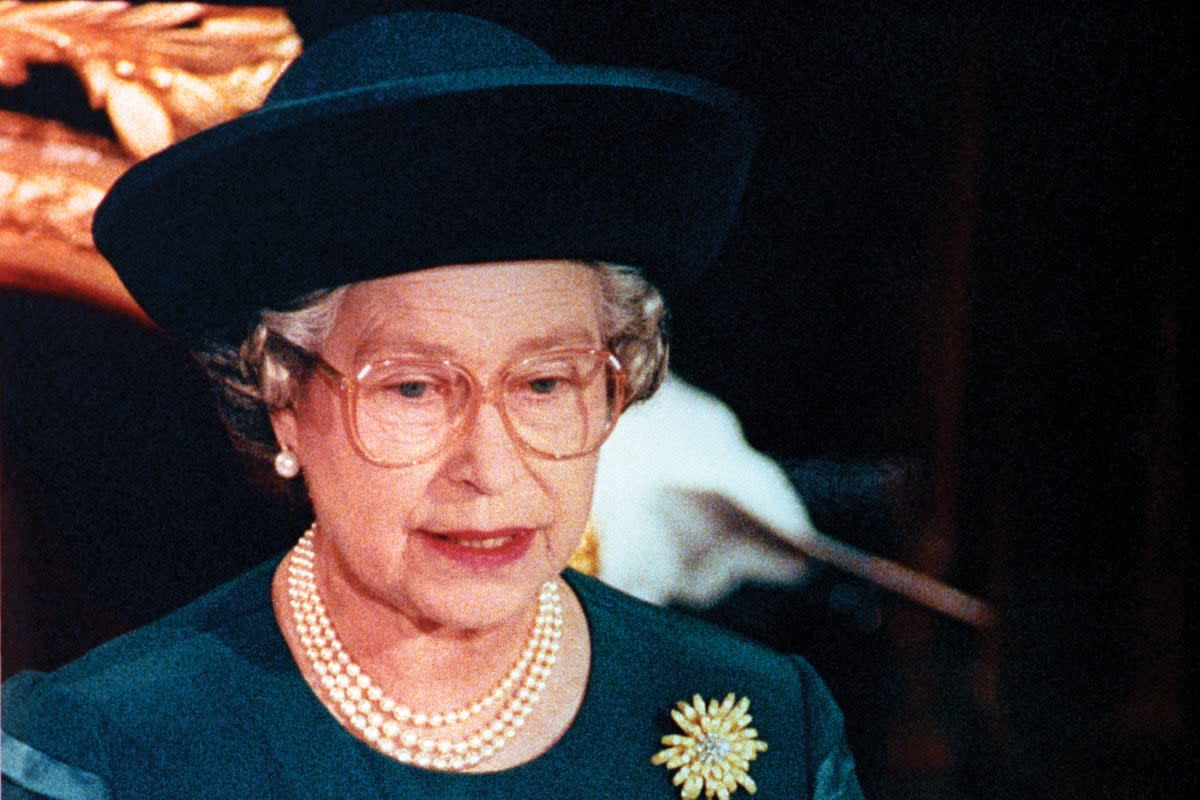The Queen’s ‘annus horribilis’

It was perhaps the lowest point of her reign, a year of royal scandal and turmoil now forever known as the one the Queen dubbed her “annus horribilis”.
1992 was when the Prince and Princess of Wales were at war, the Duke and Duchess of York separated, Princess Anne divorced, Windsor Castle went up in flames and public opinion turned against the royals.
Acknowledging that the monarchy should not be above criticism, the Queen effectively pleaded for a fairer hearing from press and public with a pledge to work for change while maintaining the institution’s stability and continuity.
Her frank and deeply personal message, almost unprecedented in its tone, came in a speech to more than 500 VIP guests at a Corporation of London Guildhall luncheon on November 24 1992, to mark her 40th year on the throne.
Her voice cracking through the effects of a cold, she used what should have been a happy celebration to face down her critics and thank her supporters for their loyalty.
It came at the end of a period of unrelenting scrutiny of the affairs of the royal family – from the marriage problems of Waleses to the break-up of the Yorks.
The Queen at no stage referred openly to her family’s problems, but there was little doubt over her meaning.
She said: “1992 is not a year on which I shall look back with undiluted pleasure.
“In the words of one of my more sympathetic correspondents, it has turned out to be an ‘Annus Horribilis’. I suspect that I am not alone in thinking it so.
“Indeed I suspect that there are very few people or institutions unaffected by these last months of worldwide turmoil and uncertainty.”
The Queen’s use of the Latin phrase “annus horribilis”, which translates as “horrible year”, was a play on the more commonly used phrase “annus mirabilis”, meaning “year of wonders”.
The “sympathetic correspondent” was Sir Edward Ford, a former assistant private secretary to both George VI and the Queen.
The events of 1992 had prompted Sir Edward to write to Sir Robert (now Lord) Fellowes, then the Queen’s private secretary, to commiserate.
His classical education led him to use the words which have become entrenched in royal history.
The Queen claimed that constructive criticism could and should act as an engine for change in any institution.
“There can be no doubt, of course, that criticism is good for people and institutions that are part of public life,” she said.
“No institution, city, monarchy, whatever, should expect to be free from the scrutiny of those who give it their loyalty and support, not to mention those who don’t.
“But we are all part of the same fabric of our national society and that scrutiny, by one part of another, can be just as effective if it is made with a touch of gentleness, good humour and understanding.”
In a passage which some observers interpreted as an open plea for understanding, the Queen said: “I dare say that history will take a slightly more moderate view than that of some contemporary commentators.
“Distance is well-known to lend enchantment, even to the less attractive views. After all, it has the inestimable advantage of hindsight.
“But it can also lend an extra dimension to judgment, giving it a leavening of moderation and compassion, even of wisdom, that is sometimes lacking in the reaction of those whose task it is in life to offer instant opinions on all things great and small.
“No section of the community has all the virtues, neither does any have all the vices.
“I am quite sure that most people try to do their jobs as best they can, even if the result is not always entirely successful.
“He who has never failed to reach perfection has a right to be the harshest critic.”

 Yahoo News
Yahoo News 
